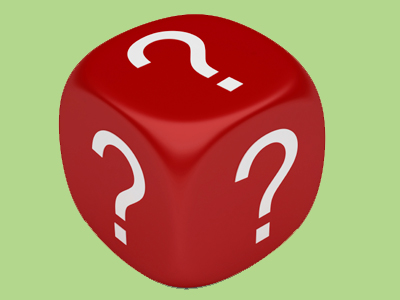
Ask the AI Tutor
Need help with Rhetorical Questions 01? Ask our AI Tutor!
AI Tutor - Lucy
Connecting with Tutor...
Please wait while we establish connection

Can you spot rhetorical questions?
Rhetorical Questions 01
Rhetorical questions make readers think without expecting an answer. Learn how to place them for emphasis, vary tone, and strengthen arguments in speeches, articles, and persuasive writing.
1 .
Select a suitable rhetorical question to use when writing an article on the following topic.
Thinking about possible future scientific advances.
Thinking about possible future scientific advances.
Curing diseases might become possible
Diseases might become curable
We might be able to cure diseases
Who can tell which diseases might become curable
Rhetorical questions often begin with: "Who can .......?"
2 .
Select a suitable rhetorical question to use when writing an article on the following topic.
Thinking about current affairs.
Thinking about current affairs.
End world poverty
Poverty in the world must end
The world must end poverty
Who knows when poverty in the world will end
"Who knows when .......?" is the rhetorical question
3 .
Select a suitable rhetorical question to use when writing an article on the following topic.
Environment
Environment
Earth's resources are being wasted
They waste earth's resources
We are wasting earth's resources
When will we stop wasting earth's resources
The other three options are statements, requiring full stops at the end. "When will we stop wasting earth's resources?" would need a question mark, of course!
4 .
Select a suitable rhetorical question to use when writing an article on the following topic.
Thinking about an impossibility.
Thinking about an impossibility.
Are you joking
It is a joke
It's a joke; it can't really happen
What a joke
Remember to use a question mark!
5 .
Select a suitable rhetorical question to use when writing an article on the following topic.
Changing a speed limit.
Changing a speed limit.
Cars crash on that road
Cars travel too fast on that road
How many more cars will crash on that road
That road is the scene of many car crashes
Rhetorical questions invite you to think about a solution or a possible answer
6 .
Select a suitable rhetorical question to use when writing an article on the following topic.
Managing a company.
Managing a company.
Improve your output now
Who can say if you'll be able to improve your output
You must improve your output
Your output is being improved
Interest your reader: use a rhetorical question to begin. The rhetorical question, "Who can say if you'll be able to improve your output?", invites your reader to continue reading in search of the answer
7 .
Select a suitable rhetorical question to use when writing an article on the following topic.
Detective novels.
Detective novels.
Become a detective
Find the villain
Follow the clues and solve the mystery
Whodunnit
Trick question! "Whodunnit" is a noun created from the rhetorical question "Who done it?" Whodidit just wouldn't have the same ring to it, would it?
8 .
Select a suitable rhetorical question to use when writing an article on the following topic.
Life's trials.
Life's trials.
Life is a constant trial
Oh dear
Why me
Woe is me
A rhetorical question uses a question mark: "Why me?"
9 .
Select a suitable rhetorical question to use when writing an article on the following topic.
Wondering at technological advances.
Wondering at technological advances.
It is incredible that man has landed on the moon
Man has landed on the moon - incredible
We thought that man would land on the moon
Who would have thought that man would land on the moon
You won't forget the question mark when writing rhetorical questions, will you?
10 .
Select a suitable rhetorical question to use when writing an article on the following topic.
Discouraging smoking.
Discouraging smoking.
Don't smoke please
How many times must I tell you to stop
Stop smoking
You must stop smoking please
Rhetorical questions are not actually inviting an immediate answer
**Unlimited Quizzes Await You! 🚀**
Hey there, quiz champ! 🌟 You've already tackled today's free questions.
Ready for more?
Ready for more?
🔓 Unlock UNLIMITED Quizzes and challenge yourself every day. But that's
not all...
not all...
🔥 As a Subscriber you can join our thrilling "Daily Streak" against other
quizzers. Try to win a coveted spot on our Hall of Fame Page.
quizzers. Try to win a coveted spot on our Hall of Fame Page.
Don't miss out! Join us now and keep the fun rolling. 🎉
**Unlimited Quizzes Await You! 🚀**
Hey there, quiz champ! 🌟 You've already tackled today's free questions. Ready for more?
🔓 Unlock UNLIMITED Quizzes and challenge yourself every day. But that's not all...
🔥 As a Subscriber you can join our thrilling "Daily Streak" against other quizzers. Try to win a coveted spot on our Hall of Fame Page.
Don't miss out! Join us now and keep the fun rolling. 🎉






